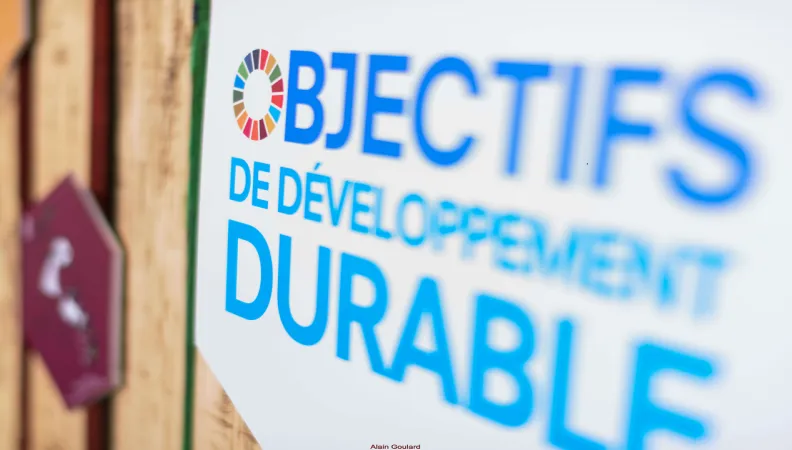Share the page
Looking Back on 2023 and Reflecting on What Development Means
Published on

From war and the worldwide difficulties to which it has given rise, to tensions between the global north and south, 2023 has been a dramatic year. What are some of the highlights, and what can we expect in 2024? We take a look with AFD economist Thomas Melonio.
Thomas Melonio, is an economist and Executive Director of AFD’s Innovation, Strategy and Research Dept.
What key development takeaways from 2023?
Two things stood out for me. The first is a vigorous reflection on the very meaning and modalities of development policy. In France, we hosted the Summit for a New Global Financial Pact, as tensions rose between the global north and south, due not only to tighter financial conditions in developing countries, but also to the worsening impacts of climate change.
See also: 8 highlights of development year 2023
The second highlight is the persistent geopolitical rift in 2023, triggered primarily by Russia's invasion of Ukraine. Last year, poor countries bore the brunt of inflation in food, fertilizers and energy, driving them back into poverty and worsening living conditions. On the diplomatic front, some governments have rallied firmly behind Russia, expressing fierce political hostility in their public speeches, which is one of the reasons why AFD's activities in the Sahel region have been so severely undermined.
One of the year's milestones was COP28, which was marked by fierce tension over fossil fuels, an issue which could not be glossed over, given the venue of the conference. Interestingly, however, the issue was tackled and the Conference of the Parties (COP) concluded with an open mandate to curb the use of fossil fuels, i.e. a mandate for action.
Video: Debt-climate spiral: 160 countries up close for greater understanding and action
In 2023, AFD also established an Interministerial Committee for International Cooperation and Development (Cicid), tasked with defining French development aid policy.
Yes, in the wake of the summit for a New Global Financial Pact, France is keen to flesh out its broad directions and principles in its development aid policy. Our intention is to innovate even further in our financing packages, particularly for the climate. New steering procedures will also enhance our flexibility in meeting this demand.
The French government funds we use in the form of grants or interest-rate subsidies for instance, will no longer be channeled solely towards a list of overly-restricted so-called priority poor countries: We will be directing the bulk of our budgetary efforts to the least developed countries, as well as to those most vulnerable, notably to climate change.
What can we expect in 2024?
A key development for us is the new strategy being devised Group-wide, and that will begin with addressing the risk of a North-South divide or disconnect. That means paying greater attention to our partners and customers, and offering solutions that advance one or more of the SDGs, without rolling back others.
Our sustainable development notice, the project validation tool, is increasingly grounded in international standards such as those of the OECD, thereby offering us a consistent stewardship framework. We are also building more robust sustainable finance standards.
In 2024, a new Finance in Common Summit is to be held China. Today, we simply cannot tackle climate change, biodiversity, sustainable finance or debt without interacting with China. We are also willing to help ensure that the Paris Olympic and Paralympic Games are "SOGs," sustainable Olympic games that allow us to explore issues such as inclusion and social cohesion.
See also: How does AFD Group align its projects with the UN Sustainable Development Goals?
How can we remain optimistic amidst international economic, ecological, humanitarian and diplomatic crises?
We must guard against two excesses: thinking that the past was glorious and that the future is bound to be Eden. Not everything was better 50, 100 or 200 years ago. Progress has been made not only in France, but even more so in the rest of the world. There is a tendency to assume that today's challenges are more daunting than those of yesterday.
The outbreak of the AIDS pandemic, for instance, with its horrifying mortality rate and total lack of medication, was a dreadful tragedy. And it still remains a challenge. Today, however, there are medical and financial solutions that have restored hope and offered effective solutions. This has called for tremendous efforts in terms of prevention and research resources, and it is only over a period of thirty years or so that we have witnessed any meaningful results.
For the climate, it is also a long-term undertaking, considering that we are still in the infancy of a transition. The sheer scale of the challenges facing us inspires us to forge ahead and act over the long term.
